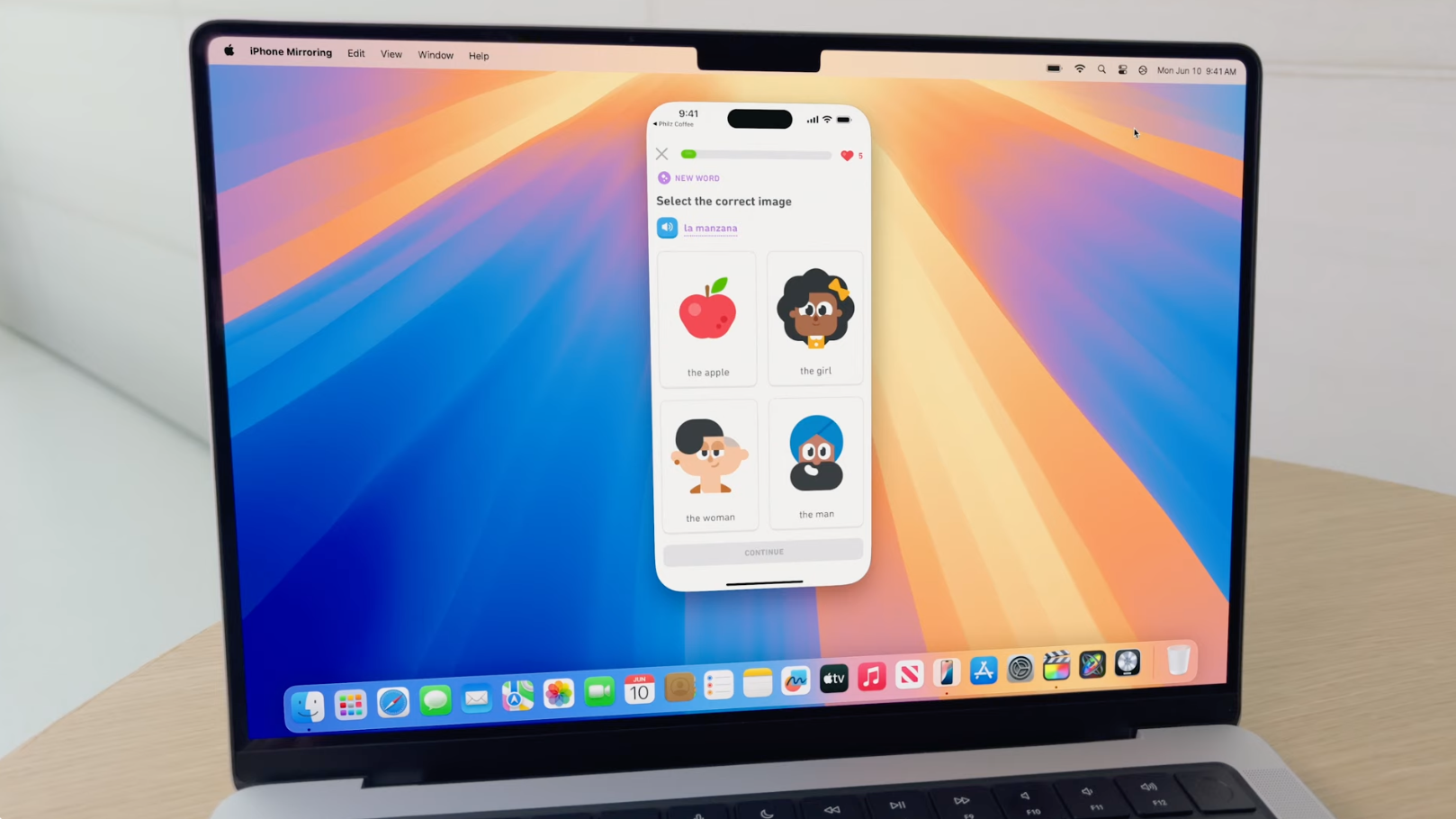
macOS 15 Sequoia was officially announced at Apple's Worldwide Developer's Conference (WWDC 2024) back in June (complete with Apple Intelligence, its new AI offering for macOS and other platforms), and at Apple’s recent “Glowtime” event, we got confirmation that the new operating system for the best MacBooks and Macs will be available for everyone with a compatible device on September 16, 2024.
Since its initial announcement, there's been a slew of macOS 15 developer and public betas (and a separate macOS 15.1 track just for developers, the only branch to incorporate Apple Intelligence functionality in testing for the desktop OS).
All these betas have given us a good look at the various features inbound with Sequoia.
Read on to find out everything we know about macOS 15 Sequoia so far.
macOS 15 release date
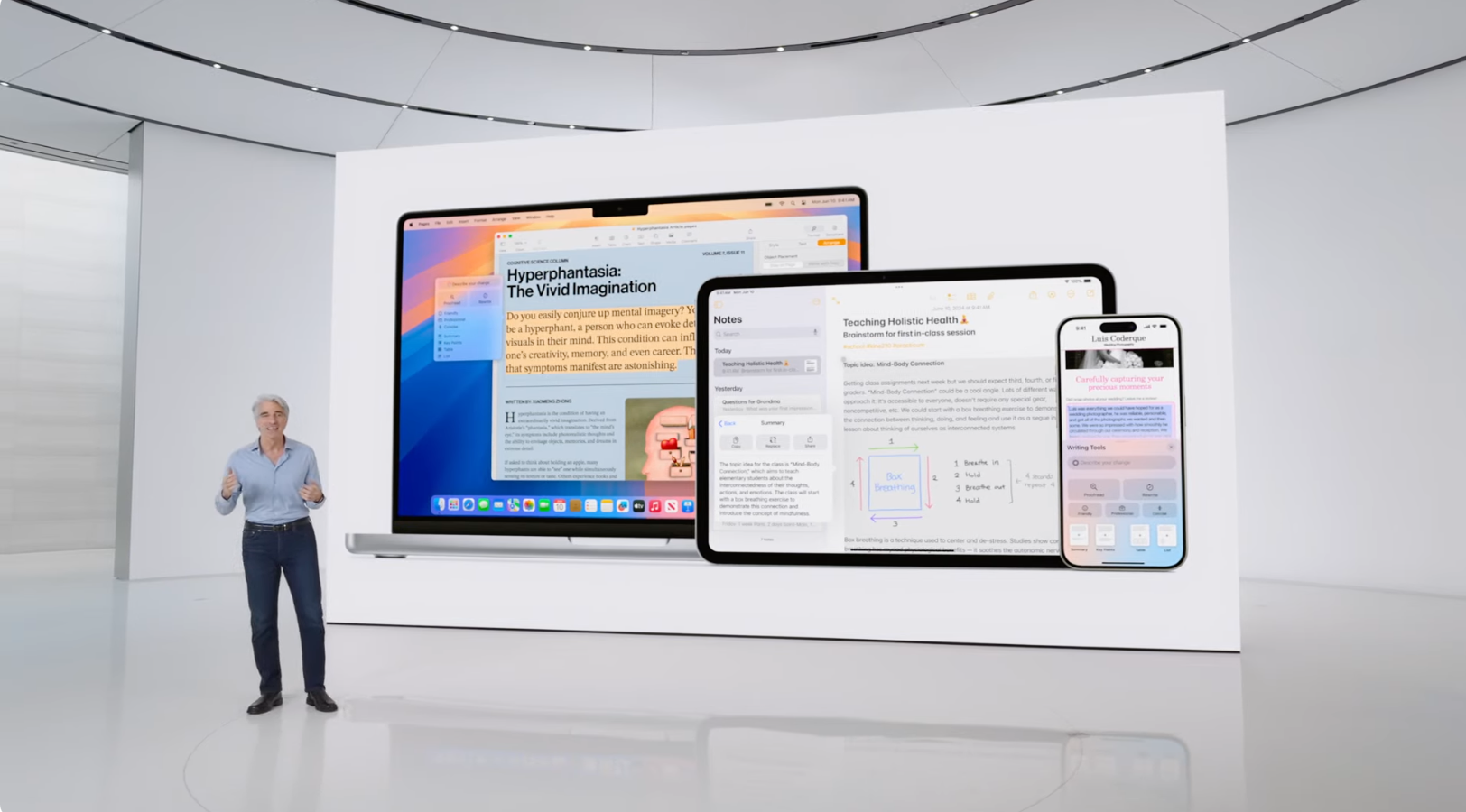
When Apple first wheeled out macOS 15 at WWDC 2024, the company told us it'd be launched during the 'fall,' so we expected to see it either in September or October 2024.
Following rumors that macOS 15 is being launched in mid-September alongside iOS 18, due to the shared features between the operating systems (namely iPhone Mirroring), Apple confirmed that macOS 15 Sequoia's release date will be September 16, 2024.
On that date, anyone with a compatible Mac or MacBook will be able to download and install macOS 15 for free. If you don't get offered the update automatically, and it does not appear in your Mac's App Store, then unfortunately it likely means you're using a Mac that isn't compatible.
Also note that macOS 15.1 will debut later in the year, packing all those nifty Apple Intelligence features, so Mac users won't have these with the initial macOS 15 - you'll have to be a little more patient for those AI goodies.
macOS 15 name
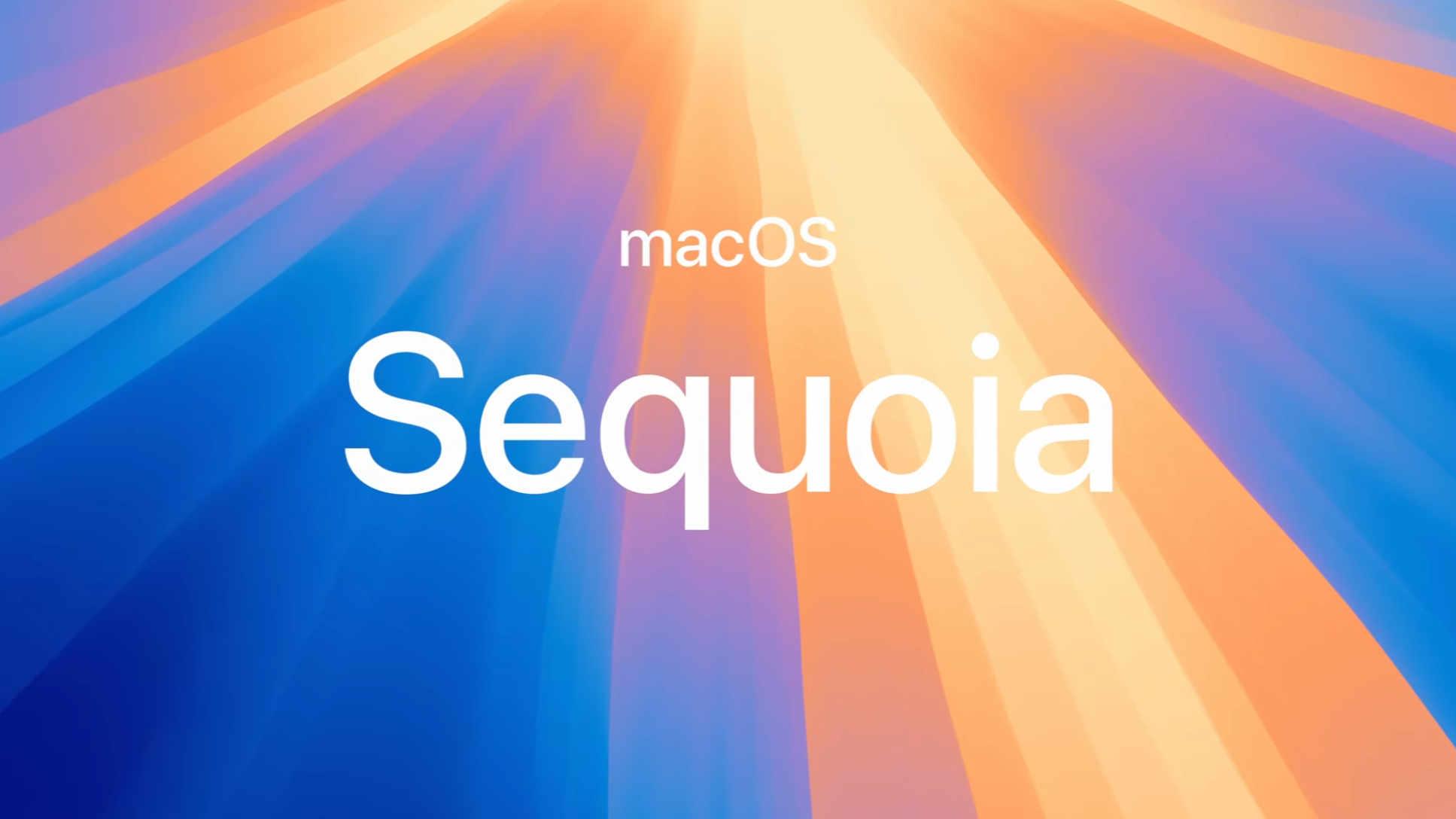
Apple revealed macOS 15's name back at WWDC 2024: Sequoia. As with previous recent macOS releases, Sequoia is the name of a Californian landmark - this time, the Sequoia National Park in Sierra Nevada.
Interestingly, Sequoia was already trademarked by Apple, so some people were expecting a version of macOS to be named that. Other trademarked possibilities were: Redwood, Grizzly, Mammoth, Pacific, Rincon, Farallon, Miramar, Condor, Diablo, and Shasta - so in theory, any of these could end up being the name of macOS 16 or later. (Yes, macOS Diablo - that'd be something to witness).
macOS 15 compatibility
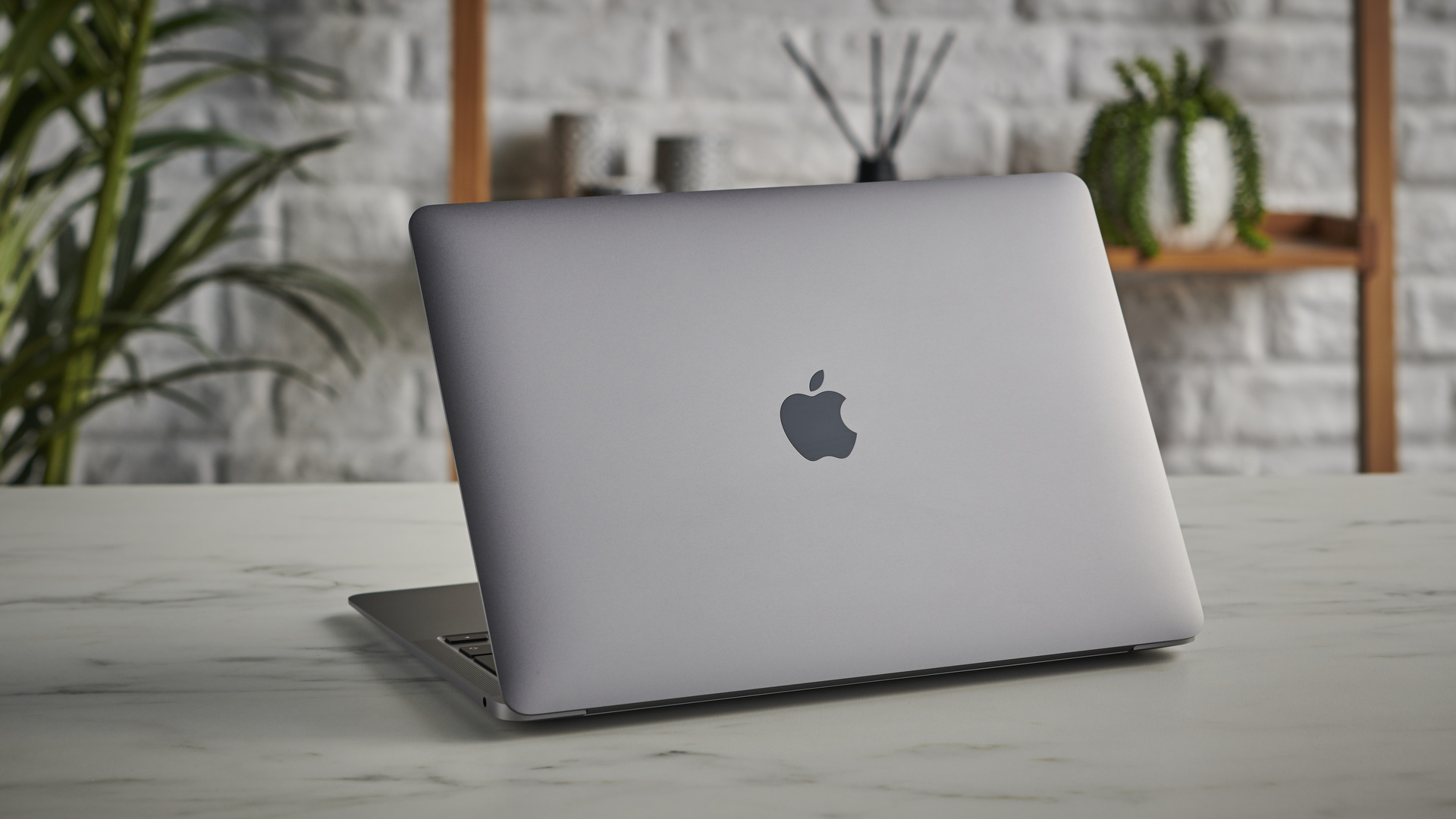
Apple has told us that the following Macs can run macOS 15 Sequoia:
- MacBook Air - 2020 and later
- MacBook Pro - 2018 and later
- iMac - 2019 and later
- iMac Pro - 2017 and later
- Mac mini - 2018 and later
- Mac Studio - 2022 and later
- Mac Pro - 2019 and later
However, the catch with Sequoia is that to get Apple Intelligence features, you'll need a Mac with Apple silicon. These are the supported Macs for AI capabilities:
- MacBook Air - M1 and later
- MacBook Pro - M1 and later
- iMac - M1 and later
- Mac mini - M1 and later
- Mac Studio - M1 Max and later
- Mac Pro - M2 Ultra
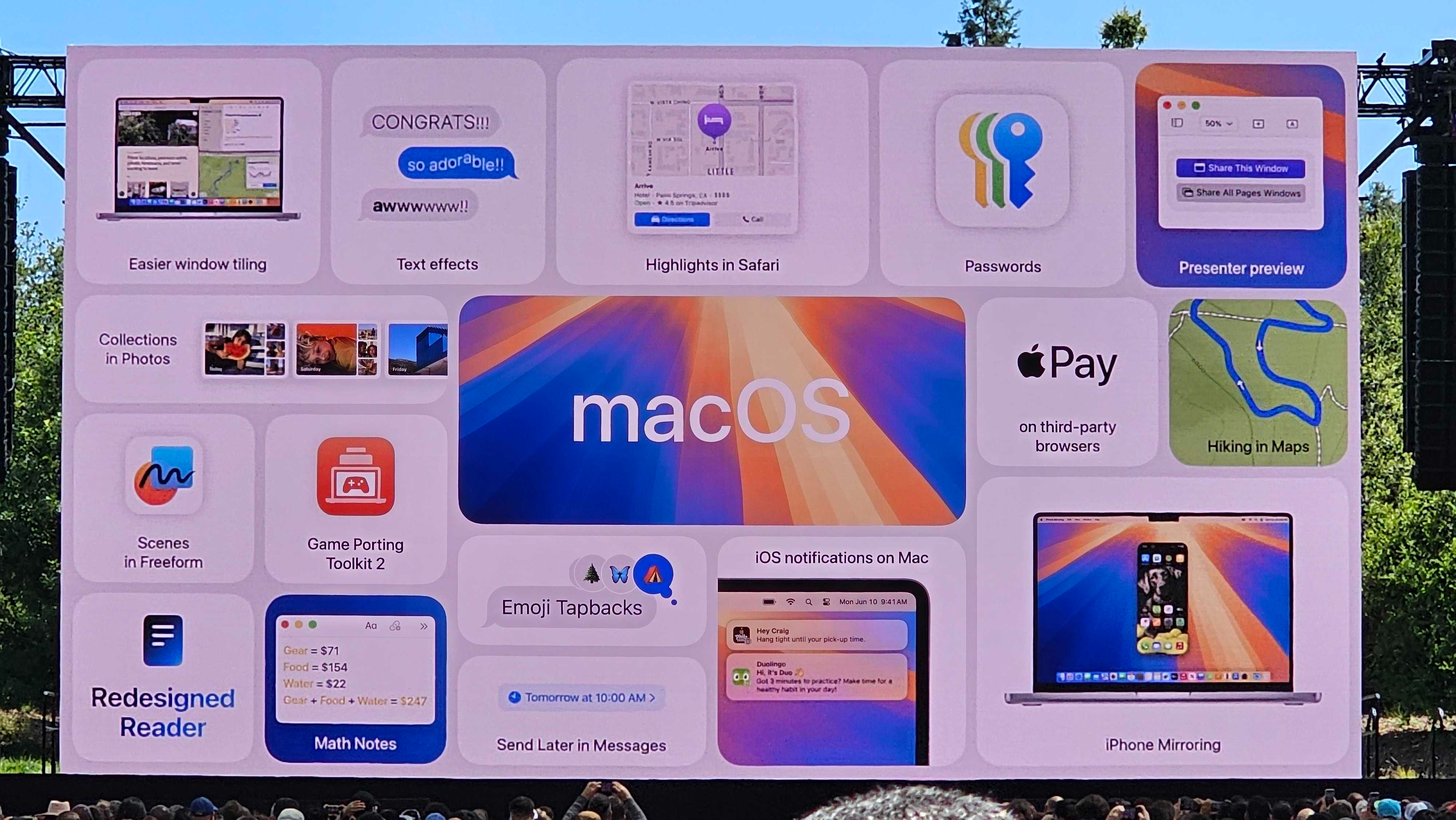
macOS 15 features
Apple hasn't always been the 'first' to introduce a product or feature, but it's known for methodically working on its own take while competitors rush to be first across the line. Then, when Apple does finally release its version of a feature, it's often polished and then achieves mainstream success.
Here's a quick rundown of the features that are incoming with macOS 15:
- Your iPhone screen can now be mirrored in macOS 15
- iPhone notifications are coming to Macs
- Improved windows layouts - drag a window to the side of your screen and macOS 15 will give you options for arranging windows
- You can replace backgrounds when using FaceTime
- Passwords app replaces Keychain, making it easier to arrange and sync your passwords - and this is also coming to iPhone, Vision Pro, iPads and even Windows PCs!
- Safari browser improvements including new 'Reader' mode which removes distractions and 'Viewer' that detects a video on a website and puts it front and center
- Smart new dynamic wallpapers
- Some really useful changes to how storage works on the Mac
- Audio customization options for AirPods (and some Beats headphones)
- Improvements to Game Mode for faster frame rates
- Apple Intelligence features for M-series Macs
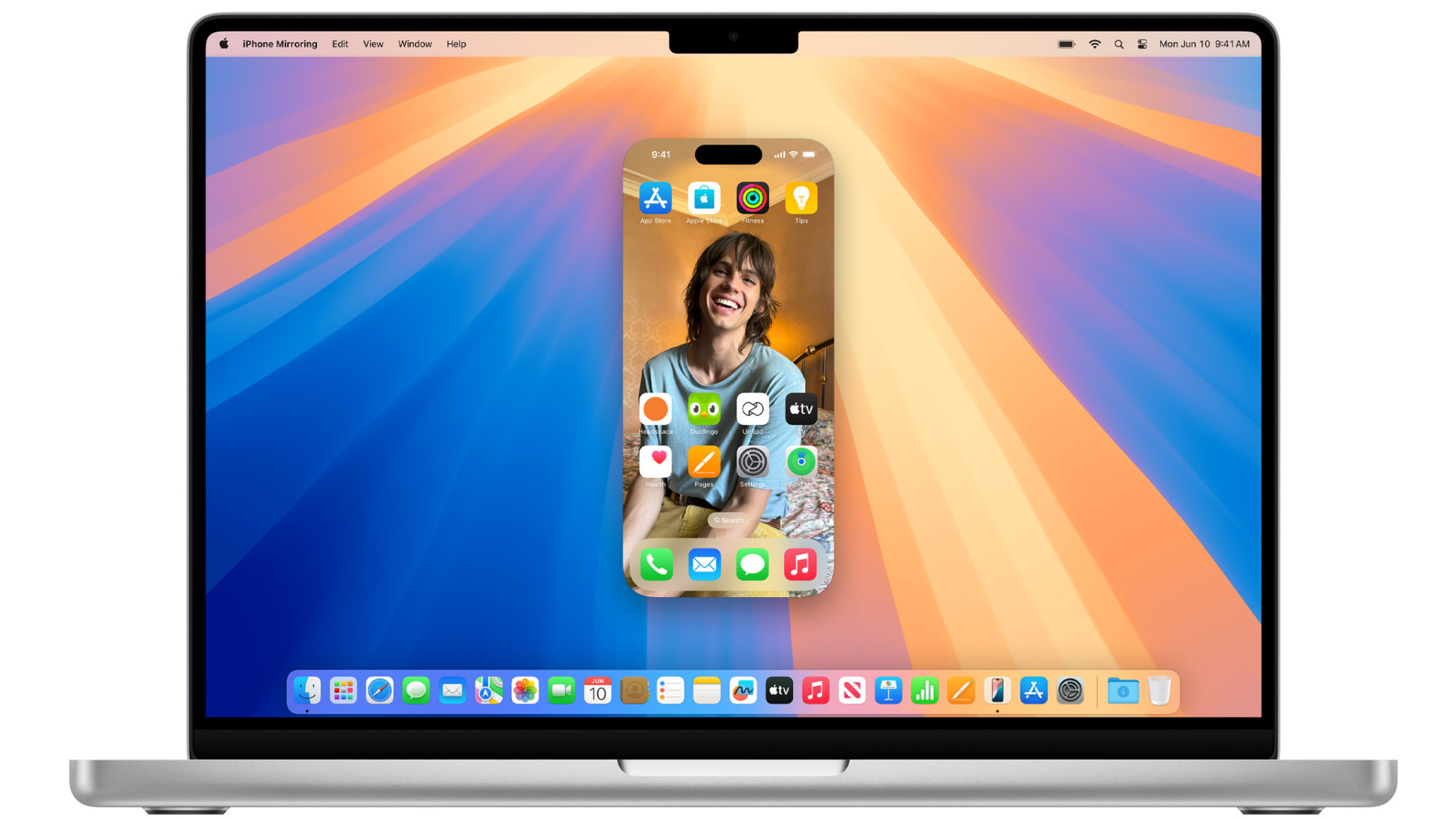
Possibly the most exciting feature for Apple Mac users is iPhone Mirroring, which allows people to see what's on their iPhone and control their phone from the screen of their Mac. You'll be able to use your trackpad to swipe through the home screen, open apps, and have full iOS app functionality (including things like 'jiggle mode') right from your laptop or PC. (There'll also be a direct drag-and-drop feature to allow you to drag a file from your Mac to drop it straight into an app on your iPhone, which looked super-seamless when Apple demonstrated it at WWDC 2024 - this hasn't arrived in beta testing yet, but should be implemented soon enough).
The iPhone Mirroring feature also comes with iPhone notifications piped to your Mac, which will let you interact with the pop-ups without picking up your phone! For example, in the case of an app like Duolingo, clicking on a mobile notification on your Mac fires up the Duolingo app which then appears on your desktop monitor or laptop screen, ready to be used. This is a great feature for intense multitaskers like students and professionals who don't want to break from their productive flow to answer a message or address an important notification.
The macOS desktop interface is also getting a bit of a facelift with macOS Sequoia, with automatic window positioning finally making an appearance in the operating system (similar to snap layouts in Windows 11, where your windows are neatly organized for you). You'll also be able to use Presenter preview, which will show you a preview of your desktop before you share your screen in meetings, and replace your backgrounds with preset images or your own pics from the Photos gallery.
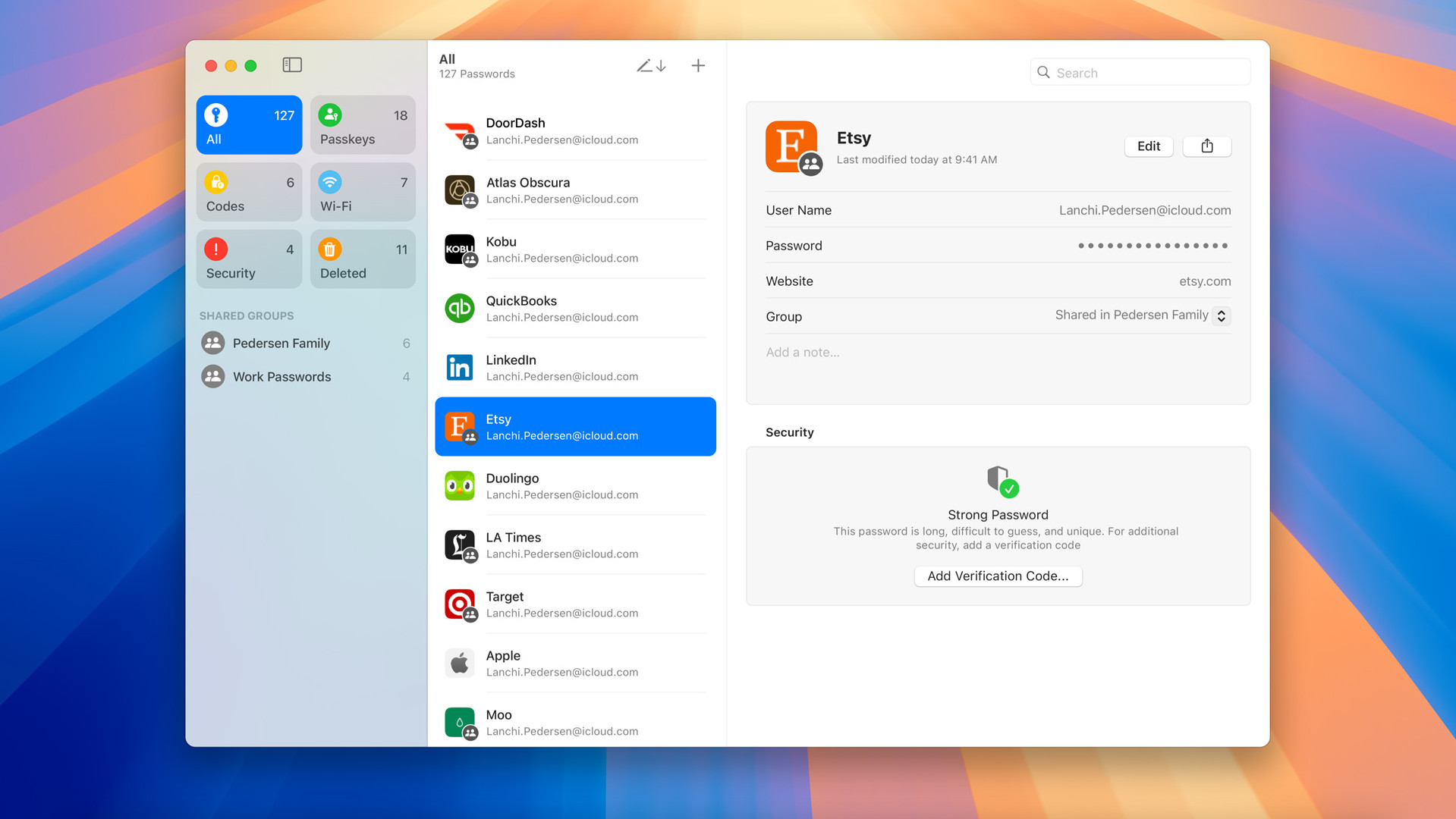
Apple's Passwords app will also be replacing Keychains, keeping all your passwords in a single organized place across your Apple devices.
The Safari browser is set for more of a boost, too, with better battery-saving capability, more private browsing, and the inclusion of machine learning to help highlight important info on a web page. Safari will also introduce Reader, which will summarize web pages and offer a table of contents so you can get right to the meat of articles without feeling bogged down.
There's a double dose of good news on the storage front, as firstly, macOS 15 does away with the quirk whereby Apple required you to (temporarily) have double the storage space needed for an app on your drive when downloading and installing it from the Mac App Store. Furthermore, when it comes to fitting in large apps, you'll be able to install them to an external drive, should you wish.
A smart move on the accessibility front is the ability to tweak your AirPods (or some Beats headphones) to amplify softer sounds, or play with the audio output balance to make calls sound clearer (or indeed music).
You can also look forward to some nifty dynamic wallpapers, including the forest-themed 'Sequoia Sunrise' background that changes as the time of day goes on. Apple has also revamped the stock Chess game that comes with macOS, with impressively modern graphics - a facelift that's perhaps long overdue.

Finally, macOS Sequoia will also get a lot of the new features coming to iOS 18 courtesy of Apple Intelligence, when macOS 15.1 arrives that is. That includes the ability to generate your own custom emojis with Genmoji, new writing tools to help you summarize and edit lengthy bits of text (or facilitate smart replies to emails), and prioritization of notifications. Siri on macOS will also get a big AI boost, with richer language understanding and personal context awareness. So, the virtual assistant will be able to use the information on your device to help you plan hikes, remind you of flights, and go through your relevant information to plan and tweak events.
There's a ton of stuff to look forward to, then, and also a couple of wrinkles we should air in terms of moves from Apple that haven't been so well-received. They include a possible security change that some folks might find annoying, and a similarly potentially frustrating privacy-related pop-up, both of which attempt to harden security for macOS 15, but could ruffle some feathers - if they aren't changed before release.


.png?w=600)




